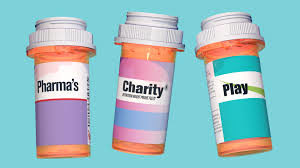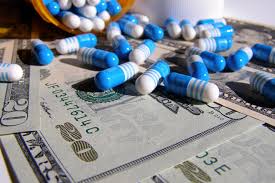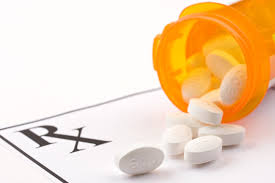Drug Companies and Charitable Patient Foundations
 Charitable organizations can easily become enmeshed in Justice Department enforcement issues. We have seen charities used in FCPA cases as a means to funnel bribes to government officials, spouses or family members.
Charitable organizations can easily become enmeshed in Justice Department enforcement issues. We have seen charities used in FCPA cases as a means to funnel bribes to government officials, spouses or family members.
In the domestic world of drugs and anti-kickback laws, drug company relationships with patient foundations are now being examined for possible violation of anti-kickback laws.
Government scrutiny of drug prices is occurring on a variety of fronts – antitrust investigators are examining pricing in the generic drug industry. The government is also investigating the relationship of drug companies to various patient-assistance foundations.
In a recent whistleblower action, Celgene Company was accused of donating hundreds of millions of dollars to charities that assist patients to afford high-priced drugs for cancers in order to earn billions from US taxpayers under the Medicare drug reimbursement program. According to the whistleblower’s claims, Celgene donated the money to patient foundations and then coordinated with the charities to ensure that Celgene’s medicines were covered.
The Justice Department has issued a subpoena to investigate Celgene and the whistleblower’s accusations. The Justice Department did not join in the whistleblower’s filing.
The allegations, if true, are explosive because of the high price of Celgene’s cancer medication. Celgene’s best-selling product, Revlimid, treats myeloma and other blood cancers and sells at an average wholesale price of $644 per pill. For Medicare patients, annual out-of-pocket expenses for the medication can easily total $10,000.
Celgene contributed between $50 and $100 million a year to charities to help patients afford the out-of-pocket expenses. Celgene claims that it did not coordinate with the charities to ensure that the charities spend money on Celgene’s products.
Celgene is not the only drug company to come under scrutiny on this issue. The government has issued subpoenas to Gilead Sciences, Biogen, Jazz Pharmaceuticals and Valeant Pharmaceuticals requesting information on their relationship with patient-assisted charities.
Interestingly, since 2010, the top seven patient-assistance charitable organizations have doubled in size based largely on donations from drug companies. Government prosecutors are examining whether drug companies are using charities as a way to prevent patients from seeking lower-cost alternatives while increasing Medicare revenues for their products.
The AKS law prohibits drug companies from giving Medicare patients direct co-pay assistance for prescription drugs. However, drug companies are permitted to give charitable donations so long as the charities are independent and there is no coordination or sharing of information on how the drug company’s donations are spent.
In the Celgene case, the whistleblower contends that Celgene coordinates with the charities to ensure that most of its  donations are used to purchase Celgene’s drugs. Drug companies are prohibited from receiving any patient data from charities on how charities spend the money they receive from drug companies. The whistleblower contends that several charities provided Celgene with significant information about its operations from which Celgene could determine how much money was being spent on its products.
donations are used to purchase Celgene’s drugs. Drug companies are prohibited from receiving any patient data from charities on how charities spend the money they receive from drug companies. The whistleblower contends that several charities provided Celgene with significant information about its operations from which Celgene could determine how much money was being spent on its products.
Relying on this information, Celgene allegedly increased donations to certain charities that it confirmed were supporting Celgene products by supporting more Medicare patients who used Celgene’s cancer drugs.














